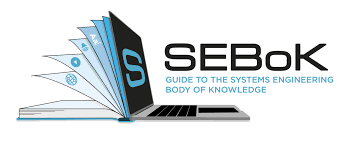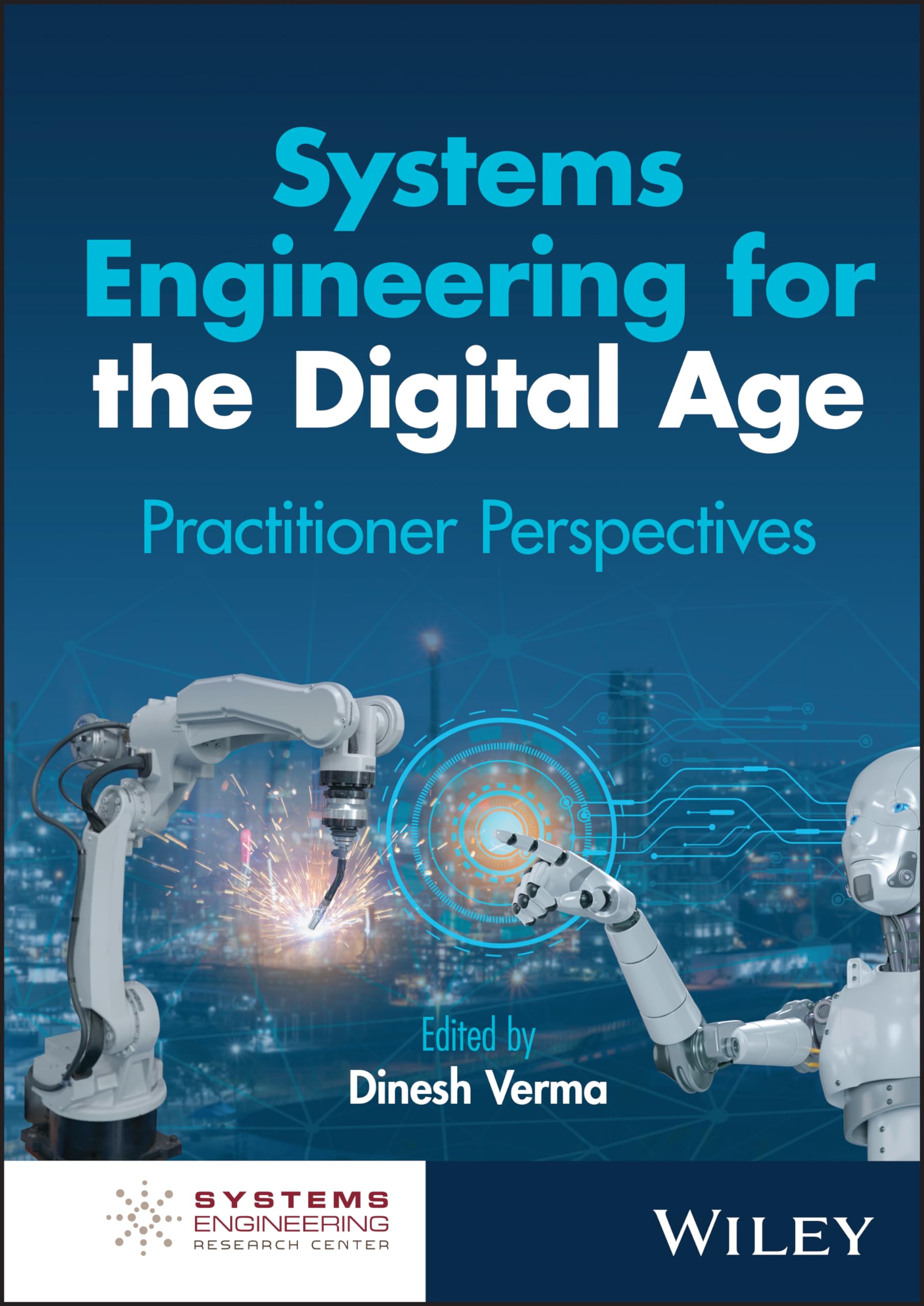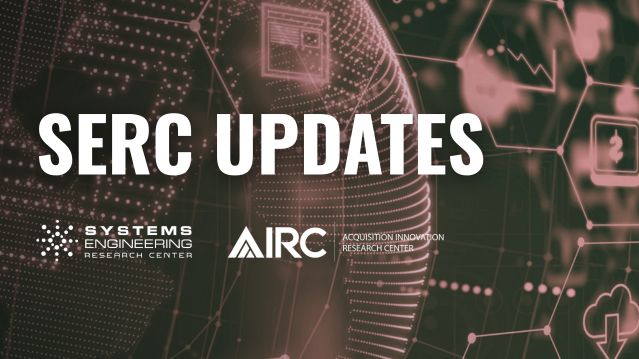
Our Research
Achieving the Future of Systems Practice for the DoD & Accelerating Capability Delivery to the Warfighters
SERC research results are broadly implemented in the federal government and industry with a high impact on large-scale acquisitions of complex systems and solutions, expanding to address challenges facing the full lifecycle of defense capability research, development, production, test and evaluation (T&E), fielding, sustainment, and disposal.
Consistently, our research aim has been, and continues to be, driven by a need to understand and drive the evolution of systems engineering practice focused on the development and deployment of increasingly capable systems and solutions.
Our Latest Research

Optimized Portfolio Digital Engineering Transformation

Trusted Artificial Intelligence (AI) Systems Engineering Challenge

Characterization of Potting Materials in Military Environments
Our Focus Areas

Digital and Data-Driven Systems
We are working to advance the digital and data-driven methods and tools used to store, access, analyze, and visualize evolving systems’ data and models across engineering, acquisition, program management, product management, test & evaluation, sustainment, and other functions.
SERC conducts research on data-driven ecosystems, ontologies and linked data, trade space analysis, data/model management, human and machine collaboration, AI and machine learning, and automation – all to improve the speed, trust, scale, and transparency of engineered systems.

Trusted Systems
Our research intersects with technical and social science disciplines, going beyond capabilities of a system to the qualities affecting its reliability, availability, dependability, integrity, safety, security, and resilience – all qualities of trust. While trustworthiness is a property of the system, trust is a property of the relationship between a user and the system.
Using model-based methods, SERC researchers are making systems more resilient to cyber-attacks and advancing system design and test methods for trust and resilience of AI-enabled systems.

Enterprises and SoS
Our research is at the forefront of system complexity and scale. Today, systems are being designed for change, combine durable and attritable systems, and are not constrained in or on a physical or virtual platform. Capability analysis is increasingly at the mission, system-of-systems (SoS), and enterprise levels. Future systems will be more complex, nonlinear, and non-stationary in their behavior, and we can no longer analyze or design them effectively via traditional SE decomposition. SERC is using AI and data visualization to advance enterprise portfolio analysis, mission engineering, testbeds for future wireless systems, and management of megaprojects.

Human Capital Development
From our very first research task, which resulted in the Systems Engineering Body of Knowledge (SEBoK), SERC research continues to contribute directly to human capital development. SERC helps the government develop its current and future workforce with advanced technical and employability skills.
Featured projects include the Helix assessment to understand what makes systems engineers effective, a digital engineering simulator for Defense Acquisition University, the Capstone Marketplace and more.
Research Roadmaps
Our SERC Research Council collaborated on these roadmaps that explore pathways involving digital engineering, velocity, security and artificial intelligence.
Research Tools

SEBoK
SERC research evolved into the Systems Engineering Body of Knowledge (SEBoK), an authoritative guide for the systems engineering discipline. The SEBoK summarizes hundreds of key topics and provides links to critical knowledge sources and references. It is a living product, accepting community input continuously, with regular refreshes and updates

DEBoK
The Digital Engineering Body of Knowledge (DEBoK) provides referential resources for the engineering community for implementing digital engineering, starting with systems engineering and expanding to specific discipline engineering domains and specialty areas.

Systems Engineering for the Digital Age: Practitioner Perspectives
This handbook features contributions from more than 60 authors and compiles the first 15 years of SERC research across 41 chapters. Systems Engineering for the Digital Age is available for purchase through the Wiley website and other booksellers.
Research News

Research Highlight: Mission Engineering and Integration of Emerging Technologies

SERC Celebrates Life of Dr. Barclay Brown

SERC Updates – December 2025

